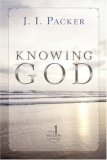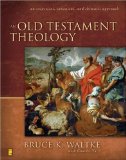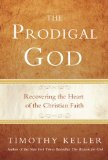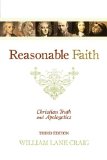Note: this review appeared originally at my old blog on 6/28/08. You can read Bob Kauflin’s comment here.
Thanks to Denise & Shantay of Crossway for the review copy of this book.
Despite my lack of musical or vocal talent, worship is one topic I’ve always been interested in. I’ve written about it before, and I’ve had plenty of other thoughts that have never made onto the blog of danny (at least not yet). I find myself in a weird position: someone who loves hymns and theologically rich songs, yet I’m actively involved in a charismatic church (and wouldn’t have it any other way). Can’t I have both? Now, there’ll be some who think I’m trying to have my cake and eat it too. Then again, what’s the point in having a cake if I can’t eat it? And in this ridiculous metaphor, which is the cake: theology or charismata? Let’s move on.

Thankfully, Bob Kauflin exists.
Bob Kauflin has been a pastor and worship leader for over 20 years and is the author of the popular worship blog
Worship Matters, which is also the name of his new book.
Worship Matters: Leading Others to Encounter the Greatness of God
is a collection of wisdom from a man who has been around. He’s a member of a reformed charismatic group of churches,
Sovereign Grace Ministries, now serving as Director of Worship Development. His book covers a wide range of topics related to worship, and despite the relative brevity of each section, he manages to provide helpful insights that show his years of wisdom (I promise, I’m not trying to make him sound old).
Kauflin divides his book up into 4 sections: The Leader, The Task, Healthy Tensions and Right Relationships. The breakdown is fairly natural and allows him to discuss each section with relative ease. While this book is not a biblical overview of worship (he does recommend other resources for that), he has sprinkled throughout the book biblical insights. One aspect of his 4-part division that I appreciate is that it allows him to weave theology into each section, rather than dealing with theology in one section and “more practical” matters in another. Kauflin truly does attempt to have his theology inform all matters of his book.
The first section, The Leader, is divided up in discussions on the heart, mind, hands and life of the worship leader. Here he deals with the worship leader himself before anything else, and doesn’t let them off the hook. You may not be the pastor of the church, but you are responsible before God and your church to take care of your own walk with the Lord, all facets of it. And Kauflin has no room for a division between head and heart (a division that I don’t feel is particularly biblical anyway).
If our doctrine is accurate but our hearts are cold toward God himself, our corporate worship will be true but lifeless. Or if we express fervent love for God but present vague, inaccurate, or incomplete ideas of him to those we’re leading, our worship will be emotional but misleading—and possibly idolatrous. Neither option brings God glory. (32)
He also deals with the issue of skill, offering wisdom in an area often breezed over. Kauflin, an accomplished musician himself, is aware of the tension between needing a certain skill level, but not allowing skill to override the worship. He notes,
Our varied skills should function like the frame around a classic painting. If the frame is too bold or extravagant, we’ll hardly notice the picture it displays. On the other hand, if the frame is cheap, shabby, or married, we’ll wonder why such a masterpiece is surrounded by junk. The right frame complements the picture in all the right ways, directing our eyes to the brilliance of the artist, not to the frame. (38)
The second section, The Task, answers the question: “So what does a worship leader do?” I’ll give you the multi-part answer as it’s broken down in the book so each element will stand out:
A Faithful Worship Leader…
…Magnifies the Greatness of God…
…In Jesus Christ…
…Through the Power of the Holy Spirit…
…Skillfully Combining God’s Word…
…With Music…
…Thereby Motivating the Gathered Church…
…To Proclaim the Gospel…
…To Cherish God’s Presence…
…And to Live for God’s Glory.
Kauflin deals with each portion of the answer as it’s own chapter, with “With Music” taking up two chapters (one on “What Kind?” and one on “Planning Sunday’s Songs”). Again, he manages to weave theology, practical wisdom and advice throughout the chapters rather seamlessly. To give a couple quick highlights:
Not surprising for someone from Sovereign Grace Ministries, I found Kauflin coming back to one point over and over again: Jesus Christ died for our sins. This truth “assures us that our worship is acceptable to God” (p74) and he also notes, “if we help people focus on what God did two thousand years ago rather than twenty minutes ago, they’ll consistently find their hearts ravished by his amazing love” (p75-76).
In regards to God’s presence during worship, he discusses an often presumed aspect of modern worship: we worship to “usher in the presence of God” (not a phrase he uses, but one that I’ve heard more times than I can count). Kauflin, though, brings in the wisdom of D A Carson: “He warns that if we start thinking it’s our worship activities that bring God’s presence near, ‘it will not be long before we think of such worship as being meritorious, or efficacious, or the like’” (p139). I realize that many people when they assume such things are speaking phenomenologically. Suffice it to say, I think using this kind of language can breed more problems than it’s worth.
Ultimately, all this is done for God’s glory. This isn’t mean to be some abstract notion of giving glory to God, but has practical implications. Kauflin quotes Allen Ross, “If worshipers leave a service with no thought of becoming more godly in their lives, then the purpose of worship has not been achieved” (p149).
The third section of the book deals with “Healthy Tensions”, such as God’s transcendence and immanence, planning and allowing room for spontaneity, and whether or not worship is for the church or for unbelievers. I appreciate Kauflin’s desire not to lose balance between each of the “extremes” (though I hesitate to call them that in all cases). But often times in trying to stay balanced, people end up with neither. I don’t think Kauflin ever does that, but I’m not so sure others will be as skilled.
In order to keep these healthy tensions, in my opinion, the worship leader needs to rely on others. So, I think Kauflin’s final section of the book is especially helpful. He deals here with the relationships the worship leader has: the church, the team and the pastor. Here we see two aspects of Sovereign Grace Ministries coming out (and these are good things): a great love for the local church and a great respect for the pastor. The worship leader, though a leader, serves the church and needs to hear from it. The worship leader is also ultimately under the leadership of the pastor and may need to submit when necessary. In fact, Kauflin’s final chapter is written to pastors as some words of advice, perhaps the best being, “A church’s response to God’s greatness and grace rarely rises above the example of its pastor” (p251).
All in all, Kauflin has written a terrific book. He does a great job of blending biblical insight, personal anecdotes and wise advice throughout the book. As for who should read it, I think it’d be a great idea for worship leaders to glean from it. Pastors, too, ought to read it as a reminder of the purpose of worship in the church. And though I am neither, I gained so much from this book. I intend to make use of Kauflin’s insights in my teaching, as many of his points apply to that as well (which shouldn’t surprise us, since worship is a form of teaching). The truth is that any Christian can read this book and come away with something.
I suppose the one thing I wish Kauflin touched on was worship leading in smaller settings. While my church has one worship leader, we have many people who lead worship throughout the week in small groups, prayer meetings, etc. True, all of his points can be transferred over easily enough. But in the NT, especially in 1 Cor 14, Eph 5 and Col 3, we see that singing in church is an activity that all participate in: we bring songs to each other to teach and encourage. On Sunday mornings with 200 people (that’s my church’s size), that’s difficult to do. But it can be done on a smaller scale. But, ultimately, that isn’t the purpose of Kauflin’s book. Maybe he’s a secret reader of the blog of danny and will take up the challenge on his own blog.
This book did make me thankful for the worship leaders we’ve had at my church. I can’t say that I’ve loved all the songs we’ve sung or the style of music we’ve used on every song. But I can say with confidence that our worship leaders aren’t simply looking to create a nice feeling or get everyone hyped up. Our current worship leader often makes it a point to say that we continue worshipping after the songs are down, which reflects his (biblical) understanding of worship.
I hope this book encourages worship leaders and pastors to consider carefully the role of worship in the church. I hope they pick songs with greater care, since, as Kauflin quotes Gordon Fee: “Show me a church’s songs and I’ll show you their theology” (p101). I hope they remember that worship is not about us “connecting with God” or walking away feeling better about ourselves, though those are good things. Ultimately, worship is about praising God for who He is, as revealed in the person and work of Jesus Christ, through the Holy Spirit dwelling in our lives
Read Full Post »
















